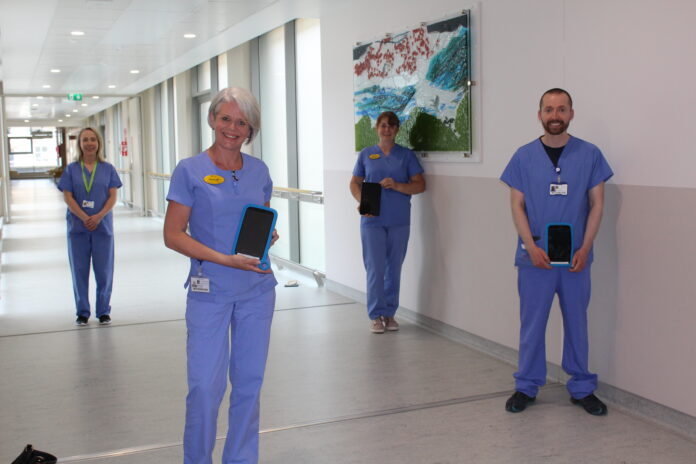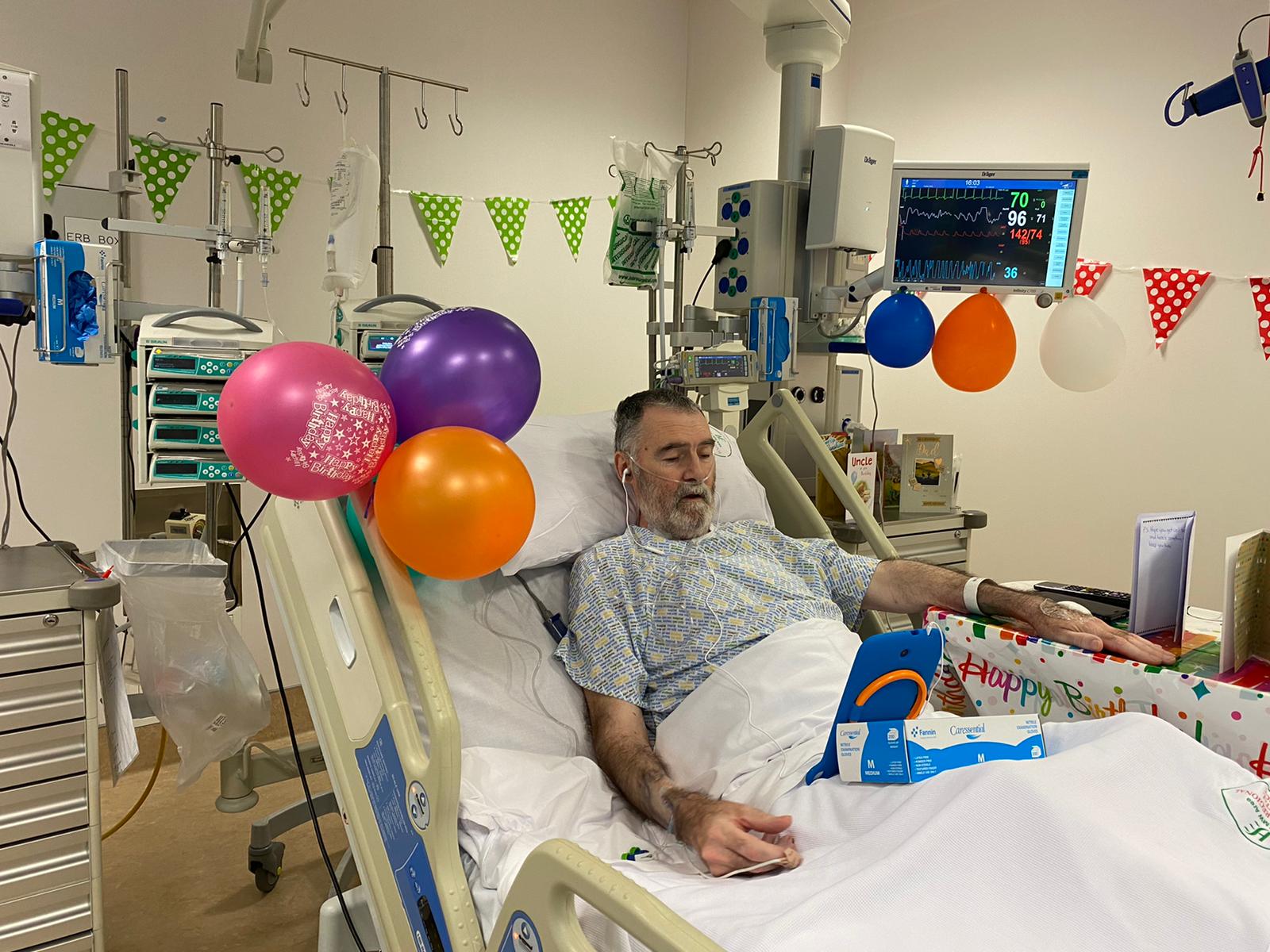
UL Hospitals Group is facilitating virtual hospital visits to help keep families in touch during the COVID-19 public health emergency.
Wide-ranging visiting restrictions were imposed across the six acute hospitals in the MidWest on March 5th as part of efforts to reduce transmission of the virus.
Additional supports were introduced for patients who could no longer look forward to a morale-boosting visit from their loved ones. The Patient Advocacy and Liaison Service (PALS) has been expanded through the recruitment of new staff and the redeployment of existing staff.
PALS are present in UHL St John’s, Ennis and Nenagh hospitals and have this week commenced a service in Croom Orthopaedic Hospital.
“It is a time of heightened anxiety for everybody. Hospital can be a lonely experience at the best of times and the visiting ban has only aggravated that.
“We identified that the PALS service could respond to the new patient needs. At UHL, we facilitated a drop-in and collection service for patients’ belongings but to support our patients emotionally, we needed to maintain face-to-face contact with their loved ones.
“Thankfully 21st century mobile technology allows us to do exactly that,” said Niamh Hogan, PALS Manager, University Hospital Limerick.
“We are delighted to have received so many donations and offers of support from individuals, from charities and from businesses that have allowed us to facilitate video calls for a virtual visit.
“The feedback from patients of all ages has been amazing to witness and we are genuinely humbled to be able to keep families connected,” said Liz O’Leary, PALS Manager, University Hospital Limerick.
Video calls are being facilitated by PALS and by nursing and medical staff at UHL, St John’s, Croom, Ennis and Nenagh hospitals while there are also plans to introduce virtual visits at the Neonatal Intensive Care Unit at University Maternity Hospital Limerick to facilitate fathers who cannot visit at present.
Margaret Gleeson, Chief Director of Nursing and Midwifery, UL Hospitals Group, said: “We knew at the outset that the decision to ban visits, while necessary, was going to be very difficult on patients and staff.
COVID-19 has required great sacrifices of everyone, including some of our most vulnerable citizens who are inpatients in our hospitals. The public health measures needed to appropriate and we also needed to show solidarity and support for our patients.
“We are currently considering how we can safely reintroduce hospital visiting as we move into the next phase. But we must all remain vigilant and COVID-19 and physical distancing are likely to remain with us in some shape or form for some time to come.
“Virtual visiting has been a real lifeline and will continue to play an important role in supporting patients,” Ms Gleeson said.



